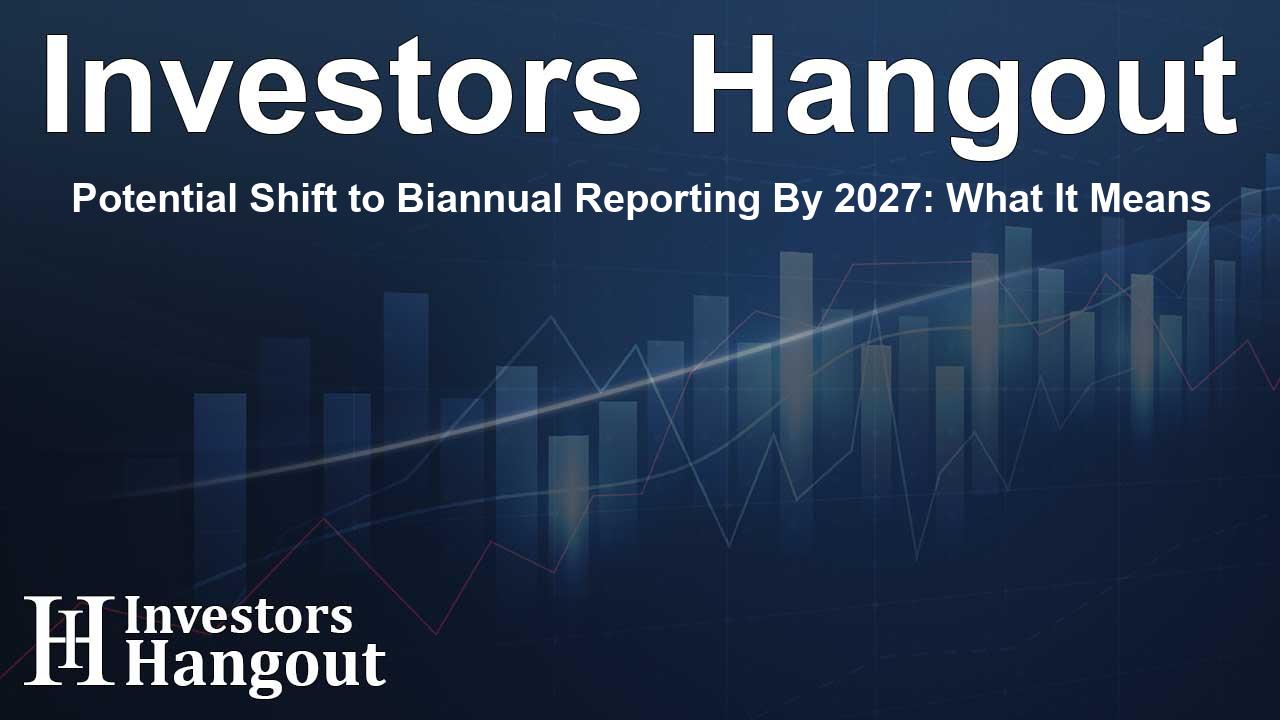Potential Shift to Biannual Reporting By 2027: What It Means

How President Trump's Push for Biannual Reporting is Gaining Momentum
President Donald Trump’s advocacy for abolishing quarterly corporate reporting is starting to gain notable traction. Observers have noted that as the White House flexes its influence over the agenda of the Securities and Exchange Commission (SEC), changes could be on the horizon.
SEC's Possible Shift Towards Biannual Filings
Despite the potential pushback from investors, analysts are speculating that the SEC may consider adopting a biannual reporting system similar to practices seen in Europe by the year 2027. This would mean companies would be required to submit financial reports only twice annually instead of the traditional quarterly updates.
Many larger corporations, however, might opt to maintain their existing quarterly reporting structures out of preference for more frequent disclosures.
Influences from the White House on SEC Policy
Trump's earlier attempts at changing the system were side-tracked due to various factors including a busy political agenda and the COVID-19 pandemic. Now, with SEC Chair Paul Atkins at the helm, there appears to be a greater likelihood of the proposal being prioritized, especially given his caution against excessive regulation.
Expert Opinions on the Proposal
James Angel, a respected authority from Georgetown University’s McDonough School of Business, expressed optimism, stating, 'Trump 2.0 is bolder than Trump 1.0, so we may actually see action.' This indicates a belief in the seriousness of the effort towards providing more relaxed reporting requirements.
Similarly, Bill Hulse, Vice President of the U.S. Chamber of Commerce, supports the idea that simplifying disclosure will not only ease compliance burdens but also enable investors to focus on critical information without being overwhelmed.
The Controversy Surrounding Trump's Proposal
Trump’s proposal for biannual disclosures has ignited a significant debate among economists and market analysts. Proponents of biannual reporting assert that the current quarterly system creates burdens and distractions that hinder companies from pursuing long-term goals. On the contrary, some analysts, including Joseph Carlson, argue that linking short-term performance to quarterly results is an essential mechanism for accountability.
The Concerns of Large-Scale Influencers
Former Treasury Secretary Lawrence H. Summers raised red flags about the potential impacts of the proposed changes, cautioning that reducing reporting frequency could jeopardize market transparency. He made a potent comparison, stating that quarterly earnings reports are crucial for holding companies accountable, much like how student grades signify performance in education.
Tom Lee, an investment strategist, also weighed in, suggesting that the pressure of a 90-day reporting cycle is misaligned with how businesses typically operate. He believes that moving to a less frequent reporting schedule would alleviate significant pressure on public companies.
What Lies Ahead for Corporate Reporting?
The discussions surrounding these proposed changes are indicative of a larger trend towards flexibility in corporate governance and transparency. As the financial landscape evolves, companies and investors alike may need to adapt to shifts in reporting norms—whether they are more favorable or challenging.
Frequently Asked Questions
What is the proposed change in reporting by the SEC?
The proposal suggests shifting from quarterly to biannual reporting for publicly-listed companies, allowing for fewer mandatory financial disclosures.
What are the potential benefits of biannual reporting?
Proponents argue that biannual reporting can reduce costs and allow management to focus on long-term strategies instead of short-term financial results.
Who supports Trump's push for biannual reporting?
Notable supporters include business executives and SEC Chair Paul Atkins, who criticize excessive regulation and aim for streamlined disclosures.
What are the concerns surrounding biannual reporting?
Critics, including former Treasury Secretary Lawrence H. Summers, argue that less frequent reporting could diminish market accountability and transparency.
When might these changes take effect?
If adopted, biannual reporting could kick off by the year 2027, pending regulatory reviews and acceptance.
About The Author
Contact Caleb Price privately here. Or send an email with ATTN: Caleb Price as the subject to contact@investorshangout.com.
About Investors Hangout
Investors Hangout is a leading online stock forum for financial discussion and learning, offering a wide range of free tools and resources. It draws in traders of all levels, who exchange market knowledge, investigate trading tactics, and keep an eye on industry developments in real time. Featuring financial articles, stock message boards, quotes, charts, company profiles, and live news updates. Through cooperative learning and a wealth of informational resources, it helps users from novices creating their first portfolios to experts honing their techniques. Join Investors Hangout today: https://investorshangout.com/
The content of this article is based on factual, publicly available information and does not represent legal, financial, or investment advice. Investors Hangout does not offer financial advice, and the author is not a licensed financial advisor. Consult a qualified advisor before making any financial or investment decisions based on this article. This article should not be considered advice to purchase, sell, or hold any securities or other investments. If any of the material provided here is inaccurate, please contact us for corrections.
